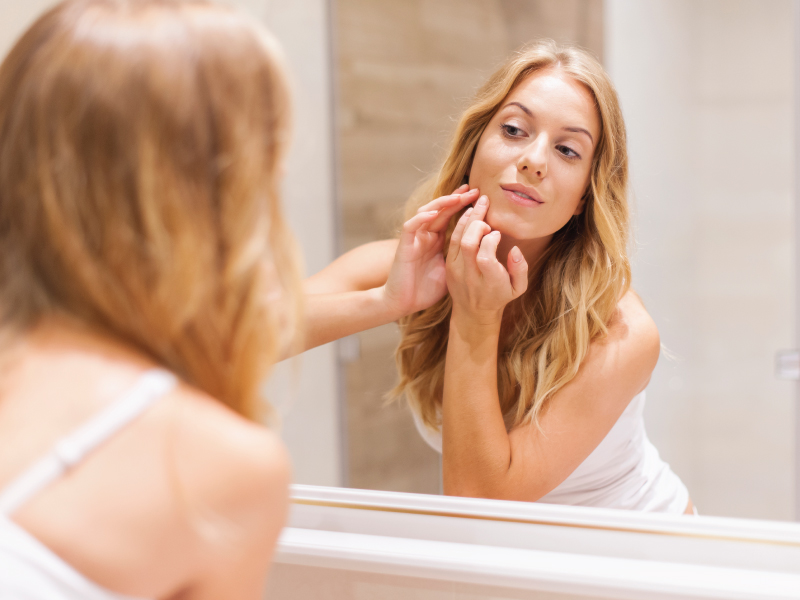Are you experiencing mild, moderate or severe acne? You will find information on the condition of acne and management options available on the market in this blog post.
Buy Acne Treatment Medicine Online Today

What is acne?
Acne is a skin condition which is particularly common in teenagers although it can also occur during early adulthood, especially women. The key features of acne are spots, oily skins and skin that is hot or painful to touch. Acne is a common condition, about 95% of people aged 11 to 30 are affected by acne to some extent. It mostly affects the face area but less commonly it can also occur on other parts of the body too such as the shoulder, back and the chest.
What causes acne?
Acne is associated with hormonal changes that occur during puberty and early adulthood mainly but it can occur at any age. The body produces excess oil (abnormal sebum) which changes the activity of usually harmless skin bacterium called P.acnes, which becomes more aggressive leading to pus production and skin inflammation. The hormones also cause the inner lining of the hair follicles to become thickened, causing blockage of pores. In some cases, the blocked pores can also get infected.
There is also a genetic link as those with a family history of acne (both parents had acne) are more likely to suffer from acne. Hormonal changes during the menstrual cycle or pregnancy can also lead to episodes of acne. There is no evidence to suggest that acne can be caused by poor diet, poor hygiene or sexual activity.
What are the main types of spots caused by acne?
There are a number of different types of spots that can be caused by acne. The six main types are listed below.
- Blackheads– small black or yellow coloured bumps on the skin, they are not filled with pus but are black due to the colour from the lining of the hair follicle.
- Whiteheads- similar in composition to blackheads but the pore stays closed in the case of whiteheads.
- Papules- Tiny red spots that usually feel painful, tender, or sore.
- Pustules– very similar to papules but with a small white tip made of puss.
- Nodules– Large hard lumps that usually develop under the skin and can be painful.
- Cysts– large puss-filled lumps that pose the greatest risk of causing permanent scarring. These are the most severe types of spots caused by acne.
What are the main available treatments for acne?
There is no cure for acne but there are a number of treatments available for the management of symptoms. Finding the right type of treatment depends on a number of factors, such as the severity of your acne, age and medical history. Some of the well-known treatments options are listed below
- Epiduo Gel – this topical gel contains a combination of Adapalene and Benzoyl peroxide. It works through a combined action to unblock pores and kill bacteria that causes acne. Epiduo is effective in managing existing acne episodes and preventing future episodes.
- Isotrex (Isotretinoin)– this topical retinoid and generally used for the treatment of moderate acne. It works by reducing the oiliness of the skin and increasing the turnover of skin cells to prevent the blocking of pores.
- Differin – a topical treatment containing Adapalene, used in the early treatment of acne. Its anti-inflammatory effects help to reduce redness, irritation and soreness. It can be used on the face, chest, and back.
- Treclin– this topical gel contains clindamycin and tretinoin. It is generally used in moderate acne. Clindamycin is an antibiotic that acts against the bacteria that causes inflammation and acne. Tretinoin increases skin turnover, preventing skin pores from getting blocked. The combined effect of the two ingredients helps with controlling and preventing acne episodes.
Some of the other key treatment categories include,
- topical retinoids
- topical antibiotics
- azelaic acid
- antibiotic tablets
- in women, the combined oral contraceptive pill
What can you do to help manage your acne?
Three are a number of things that you can do to help manage your acne-related symptoms.
- Do not wash your face more than twice a day as too much washing can irritate your skin.
- Wash your face with mild soap and lukewarm water.
- Do not apply too much make-up. Try to use water-based make-up, non-comedogenic make-up.
- Do not try to take out spots by squeezing them as it can damage your skin and cause permanent scarring.
